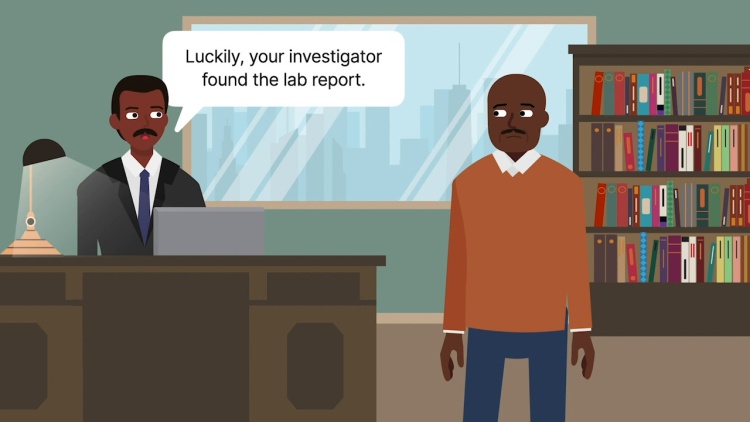Connick v. Thompson
United States Supreme Court
563 U.S. 51 (2011)

- Written by Sean Carroll, JD
Facts
Harry Connick (defendant) was the Orleans Parish district attorney. Connick’s office charged John Thompson (plaintiff) with armed robbery. The prosecution failed to disclose to the defense a swatch of fabric with the perpetrator’s blood on it and the lab report listing the blood type. Thompson was convicted. Due to this conviction, Thompson elected to not testify in his own defense in an unrelated trial in which he was charged with murder. Thompson was convicted of murder and sentenced to death. While on death row, Thompson’s investigator discovered the lab report from the fabric swatch. Thompson arranged for his blood to be tested, and the test found that his blood did not match the blood on the fabric. Thompson’s armed robbery and murder convictions were vacated. Thompson was released after spending 18 years in prison. Thompson brought suit against Connick, alleging a violation of 42 U.S.C. § 1983 based on Connick’s failure to train his attorneys about the necessity of disclosing evidence to the opposing party. Connick acknowledged the error of not disclosing the fabric and the lab test. Testimony of Connick and other attorneys in his office indicated that the attorneys in the office misunderstood the evidence-disclosure requirement and that there was a lack of institutional desire to correct those misunderstandings and enforce the requirement. The jury awarded Thompson $14 million. The United States Court of Appeals for the Fifth Circuit affirmed. The United States Supreme Court granted certiorari.
Rule of Law
Issue
Holding and Reasoning (Thomas, J.)
Dissent (Ginsburg, J.)
What to do next…
Here's why 907,000 law students have relied on our case briefs:
- Written by law professors and practitioners, not other law students. 47,100 briefs, keyed to 996 casebooks. Top-notch customer support.
- The right amount of information, includes the facts, issues, rule of law, holding and reasoning, and any concurrences and dissents.
- Access in your classes, works on your mobile and tablet. Massive library of related video lessons and high quality multiple-choice questions.
- Easy to use, uniform format for every case brief. Written in plain English, not in legalese. Our briefs summarize and simplify; they don’t just repeat the court’s language.





